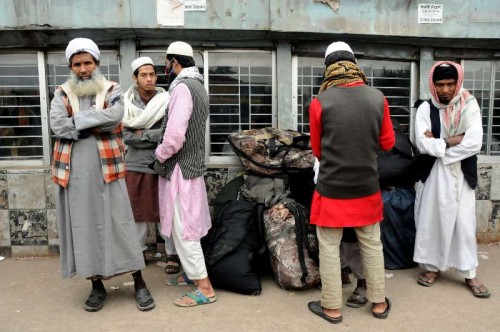
All rallies and processions have been banned in the Bangladeshi capital city in the light of simmering political tensions between the opposition and ruling parties, a media report said .
The step was taken to curb spiralling tensions between supporters of the opposition Bangladesh Nationalist Party (BNP) and the ruling Awami League (AL) ahead of the first anniversary of last year’s controversial general elections held Jan 5, bdnews24.com reported.
The BNP-led opposition alliance had boycotted the general elections and has been pressing for fresh elections since then.
The ban on rallies and processions would be effective Sunday from 5 p.m. till further notice, a statement by the Dhaka Metropolitan Police (DMP) said.
“Some political parties have announced events in Dhaka Metropolitan area Monday, Jan 5. In this context, it occurred to me that clashes and untoward incidents might happen if these events were allowed to be held. So, it would risk public safety,” the statement quoted DMP commissioner Benazir Ahmed as saying.
On Saturday, police cordoned off former Bangladesh prime minister and BNP chairperson Khaleda Zia’s office amid rising political tensions. She was reportedly stopped twice by the police from leaving her office.
Police increased its presence around Zia’s office from early Sunday.
The DMP, however, insisted that Zia was not confined to her office and explained that the heavy police presence there was part of a “security measure”.
“Khaleda Zia is a former prime minister and the BNP chairperson. According to intelligence assessments, she is at security risk. That’s why her security has been beefed up,” said DMP joint commissioner Monirul Islam.
Asked if Khaleda could leave her office premises, the official said that the decision would be taken after assessing her security risk.
Police reportedly also arrived at the residence of BNP’s acting secretary general Mirza Fakhrul Islam Alamgir Sunday. However, neither he nor his family were present at that time.
The joint commissioner, however, denied any police raid on Alamgir’s home.
Opposition parties, led by BNP, gave a call for a nationwide dawn-to-dusk strike Dec 29 in which a school teacher was killed and dozens of other people were injured.